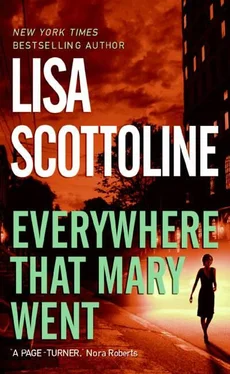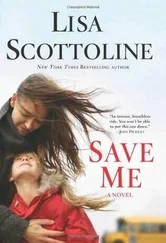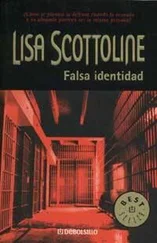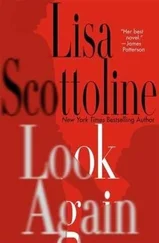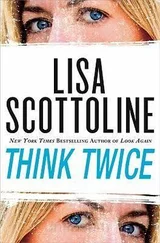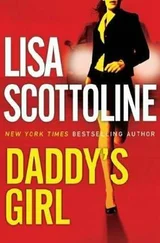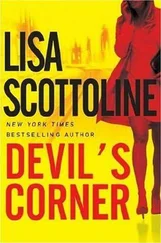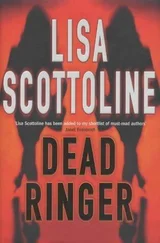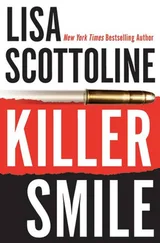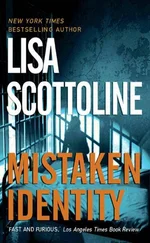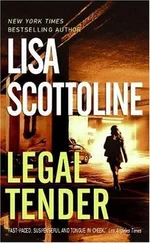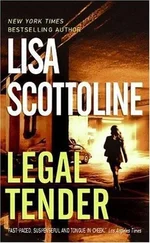The basketball player makes a pleading face for the phone, and I give him a one-minute sign.
“I’m leaving the city, Judy. For the night, anyway.”
“Where are you going?”
I can barely hear her. I put a finger in my free ear. “I was going to get the notes from Ned after lunch, but I can’t. Will you call him and get them?”
“Nedhas the notes? I was wondering where they were!”
“Keep them someplace safe, okay?”
The basketball player folds his hands in mock prayer.
“Judy, I have to go, somebody wants to use the phone. He’s begging already.”
“But where are you going to stay tonight? You can stay with me, you know that.”
An old man in a mesh cap that saysOLD FART gets in line for the phone behind the mailman.
“Thanks, but I got a better idea. Call you tomorrow.” I hang up.
“Thanks a lot,” the ballplayer says, tucking the basketball under his arm. “I got to call my girl. We had a fight, you know what I’m sayin’?”
“I think so.”
I push through the crowd, looking for a cab. One should be around soon; Pat’s is like a magnet. My blotches announce themselves with a vengeance. I worry about running into Lombardo, Berkowitz, or whoever’s following me. My head is spinning. I spot a yellow cab and jump in, slumping down all the way in the seat. Partly from exhaustion, partly from fear.
The cab driver is a streetwise manchild in a backwards Phillies cap. He eyes me warily over his shoulder. “Look, lady, I don’t want no trouble in my cab.”
“There won’t be. Please, I have to go to a garage at Twenty-second and Pine. My car’s there. Can we just go?”
He shakes his head. “You don’t look like the type to be running from the cops, but you’re sure runnin’ from somethin’.”
“I am. I’m running from…my boyfriend. We had a fight.”
He breaks into a knowing grin. “Man trouble.”
I nod. “We have to get out of here. Fast.”
“You got it, gorgeous.” He flips down the flag and guns the motor. He runs two lights as he zips up Twenty-second Street. At the same time, he manages to give me unsolicited advice on my love life, delivered to a rapper’s beat: Gotta make ’em beg for it, gotta make ’em want it, gotta make ’em show respect. We’re at the garage by the time he shifts into, “Gotta shop around.”
“Right. Listen, would you do me a favor, please? Just wait here for two minutes until you see me drive out?”
“Ain’t no way he coulda followed me, lady. I was bookin’.”
I hand him a tip the size of the fare.
“All right!” he says appreciatively.
“It’s a green BMW.”
“A BMW? I like it! Which one, the 325 or the 535?”
“The 2002, from before you were born. It’s lime green, you can’t miss it.” I get out of the cab.
“You gotta pick and choose, remember that now.”
In ten minutes, I’m making my way through the western part of the city to the Schuylkill Expressway. I almost have an accident from driving with one eye on the rearview mirror. No one appears to be following me, and when I pull onto the expressway I begin to breathe easier. The traffic is light, and I switch lanes a couple of times to see if anyone behind me does the same. It takes only a minute for me to realize that everybody else is switching lanes in a similarly haphazard way.
Which looks normal.
I hit warp speed in the car Mike lovingly called the Snotmobile and bust through the city limits like I’m breaking the sound barrier. After a time I satisfy myself that no one’s on my tail, and I feel freer, safer. Like I’m not trapped anymore, by the city and by whoever’s after me there. I roll down the window and snap on the radio. I recognize the husky bass voice as George Michael’s, in the middle of “Father Figure.” I love that song. I turn it louder.
I remember going to visit Angie, singing along to the radio while Mike drove this car. My parents trailed us in their Oldsmobile, which meant we pulled over every ten minutes for them to catch up. It didn’t bother Mike that my father poked along so. Nothing really fazed him, he was like Judy that way. He loved life, truly. He let it wash over him.
I swing the peppy BMW onto Route 1 heading south, serenaded by Prince. Route 1, the old Baltimore Pike, is more direct to the convent than I-95. If I don’t get lost, I’ll be there by nightfall.
Angie entered the convent just after we graduated from Penn. I majored in English, she in religion. “What kind of job will you get with that major?” I asked when she chose it, but she answered with a shrug. When she finally told us, my parents were delighted, but I was appalled. I screamed at her, told her she was throwing her life away. My mother begged me to stop, my father merely shook. I ran from the house. My last look back was at Angie. She sat there, impassive behind her coffee, dead calm at the vortex of a familial hurricane.
The traffic on Route I moves swiftly, fluidly. I catch barely a light. A woman I don’t recognize sings a ballad. My thoughts turn to the convent.
Angie’s first year as a novitiate was my first year as a law student. She wasn’t allowed visitors, telephone calls, or even mail. It was to be a test of her commitment to a religious life, and we heard nothing from her. I felt an almost unendurable loss, as if she were held hostage by religious fanatics, which was my take on the situation anyway. Outside the cloister, life went on. My mother’s eyes deteriorated, my father gained twenty pounds. I made law review and learned to trust men again. With Mike’s help.
The sad song ends abruptly, in silence.
Which was the worst thing about Angie’s life in the cloister. Her vow of silence. How could they silence Angie, who was so full of talk, of ideas? I remembered the nights we gossiped in our room, the whispered jokes in class, the shouted jeers on the walk home. So much talk, so much language. English and Italian at home, French in school, Latin at mass. No more.
The traffic thins out, the stoplights are fewer. Madonna comes on,thumpa thumpa thumpa, and I turn off the radio with a satisfyingclick. I hate Madonna; she’s even more confused about Catholicism than I am. I barrel through the rural stretches south of Media, past dairy cows and old barns. The odor of manure wafts through the air. I step on the gas.
After Angie’s first year, we were permitted to see her. The visits-four a year-were held in a small room called the Parlor, and there was a wooden screen between us, almost like the lattice in a garden trellis. I wasn’t able to touch her, and there was no privacy; the room was filled with the equally excited families of the other nuns. I found the visits an exercise in frustration. I couldn’t talk to Angie about anything that mattered, couldn’t reach her in any meaningful way at all, so the garden trellis might as well have been made of concrete. All I could do was watch us grow apart. Over the years, her face thinned out and her demeanor grew subdued. By the time she became a professed sister five years later, I felt I hardly knew her at all. I hugged her then, after the mass, and cried most of the way home.
I speed by farm after farm, and all I see for a long time are cows and billboards.WELCOME TO MARYLAND, says the sign when I cross the border. I wind slowly through Harford County, with its quaint farms and not-so-quaint trailer parks. The sun sets off to my left, behind a Bob’s Big Boy. The car rumbles along quietly; my mind is a blank. The exit for the convent comes up. I twist the car off the highway, into a suburb near the convent. I forget the name of the town, but I recognize the landmarks. A housing development of fake English mews, then a housing development of fake French chateaux.
My anticipation sours slightly. I grow apprehensive. What if they won’t let me stay? What if Angie’s angry at me for coming? A hard ball begins to form in my chest. It seems to calcify as I drive by a diner where Mike and I ate lunch after he met Angie for the first time. I remember that lunch.
Читать дальше
Конец ознакомительного отрывка
Купить книгу
